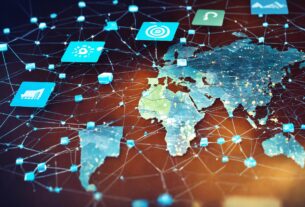Though we live more connected than ever, have you ever felt as though the world is growing more anonymous? It is a weird conundrum. This is where the idea of “Bl_Faceless” comes in—a word that catches this odd mix of invisibility in a hyper-visible environment. In this day of digital personas often overshadow real-life identities, it is easy to feel faceless in a crowd. But precisely what does “Bl_Faceless” signify, and how would it influence our daily activities? Let’s explore this intriguing subject and jointly unravel the riddle.
What Exactly is Bl_Faceless?
Bl_Faceless captures our contemporary reality rather than only a catchy word. It’s the theory that we lose touch with the human side of engagement as we descend more into digital environments. Our faces buried beneath screens, emojis, avatars, and blurring identities. Consider it: how often you interact with someone online without knowing who they are? Bl_Faceless catches the core of living in a faceless society in a world where your online appearance can be more important than your actual one. But why is this happening? Our increasing dependence on technology for communication, socialising, and self-expression will help to explain the solution.
Origins and Evolution of Bl_Faceless
Bl_Faceless originated in the early days of the internet, when anonymity served both as a shield and a weapon. Being faceless online back then allowed flexibility to explore, express, and interact free from the limitations of a defined identity. Say anything, you could be anyone, and none of us would be the wiser. But the ramifications of being faceless changed along with the internet. Bl_Faceless nowadays is about the loss of personal connection and the emergence of a culture in which digital interactions often replace in-person communication, not only about anonymity.
The Psychological Impact of Bl_Faceless
Living in a Bl_Faceless universe has a significant psychological impact. Our empathy reduces without our capacity to view and relate to actual faces. We start to becoming more prone to misinterpretation, arguments, and an overall isolation. Have you ever found it interesting how easy it is to be nasty online as opposed to in-person contacts? The Bl_Faceless effect is then under action. Lack of a human face when we interact with screens might cause dehumanisation. We overlook the natural person on the opposite side with actual emotions. This alienation can lead to less sympathy and greater callousness, which fuels the poisonous environment of internet forums.
Social Dynamics and Bl_Faceless
The Bl_Faceless phenomena generates a special dynamic in social environments. On the one hand, it enables some degree of inclusiveness—anyone can engage without regard to appearance, colour, gender, or other physical traits—based on fear of judgement. Conversely, it encourages a detached culture in which real ties are rare. Beyond cursory exchanges, how often do we really connect with someone online? Digital communication’s anonymous character makes it simple to skim the surface without delving deeply, hence creating shallow and fleeting relationships.
Bl_Faceless in Popular Culture
Bl_Faceless is not only a notion from our daily life but also permeates popular culture. From literature to films, the concept of a faceless life has been investigated, challenged, and even honoured. These depictions of our reality help us to define what it means to be faceless in a digital age.
Movies and TV Shows
TV series like “Black Mirror” and films like “The Matrix probe the nightmarish side of a faceless society. These stories sometimes show a society in which uniqueness is given up for group anonymity, therefore casting doubt on the price of technological development. In “The Matrix,” for instance, people are only faceless cogs in a computer, cut off from their own selves. Analogously, “Black Mirror” episodes frequently examine the sinister side of technology, where the loss of identity and the blurring of reality and digital life have terrible results. These tales reflect our own experiences, so we start to wonder if we are currently living in such a world.
Literature and Art
Literary works frequently address the human condition, alienation, and identity by use of the faceless concept. Novels like “1984” by George Orwell and “Invisible Man” by Ralph Ellison explore society concerns using the theme metaphorically. In “1984,” the protagonist’s fight against a faceless, repressive government reflects the current fight against the degrading consequences of a digital society. Likewise, “Invisible Man” looks at being invisible and unheard in a world that prizes conformity above uniqueness. Resonating with the Bl_Faceless subject, faceless figures often inspire in art a sense of loss and separation. Artists utilise facelessness to remark on the loss of individuality in a society where social conventions and technology define our roles.
The Role of Technology in Bl_Faceless
Bl_Faceless’s spread is largely aided by technology. Our digital identities sometimes take front stage over our physical ones as social media, internet forums, and virtual reality become more and more important. We create our lives online, showing a version of ourselves maybe detached from reality. However, at what expense? Losing touch with our actual selves comes with the ease and connectivity technology presents
Social Media’s Influence
Bl_faceless finds breeding ground on social networking sites including Facebook, Twitter, and Instagram. People can create identities here that might or might not mirror their own. Often difficult to keep in real life, filters, editing tools, and the power to control what others see build a front. This causes a conflict between our real and online selves, which fuels the Bl_Faceless phenomena. Has your social media profile ever seemed to differ from your actual self? This is the Bl_Faceless effect. The likes, comments, and shares easily enthral one and causes one to forget that behind the computer there is a real person with real emotions.
Online Anonymity
Online anonymity has great appeal since it lets us explore, express, and interact free from the limitations of our actual identities. But anonymity also has a negative side. It can cause actions such trolling, harassment, and the dissemination of false information that would be unacceptable in in-person contacts. Online interaction sometimes reveals the worst in individuals, hence the internet is a haven for negativity since the faceless character of participation highlights this. Saying things you wouldn’t dare say in person is simple when nobody know you. This anonymity can weaken confidence, breed resentment, and enable an atmosphere in which cruelty rules.
Ethical Considerations
Bl_Faceless’s emergence brings a number of moral conundrums. We have to face privacy, openness, and accountability as we negotiate this faceless society. In particular situations is it appropriate to stay faceless, or does anonymity carry inherent dangers? These are issues society has to address going forward.
Privacy vs. Transparency
The ethical conundrum of Bl_Faceless mostly revolves on the balance between transparency and privacy. One hand, we have a right to keep some parts of our life secret. Our mental and emotional health depends on our ability to keep privacy in a society when everything is accessible. Transparency is, however, also absolutely necessary for community, responsibility, and trust. How can we really know and grasp one another without it? While it’s easier said than done, striking the proper balance is really vital. How can we keep our privacy while also being upfront and honest with others? This is a delicate dance that calls both continuous awareness and deliberate effort.
Responsibility and Consequences
Anonymity carries responsibility—or lack thereof. Bl_Faceless worlds make it easier for one to overlook their own deeds, which results in an impunity culture. But this lack of responsibility has practical effects that influence society standards as well as personal relationships. Hiding behind screens allows us to forget how our words and behaviour affect other people. Still, our faceless form does not make us benign. We have to think through the long run effects of our decisions as we negotiate this faceless terrain. Are we working to be responsible digital citizens or are we part of a culture of carelessness?
Coping with the Reality of Bl_Faceless
How therefore should we negotiate Bl_Faceless’s reality? It’s not about rejecting online environments or turning away technology. Rather, it’s about striking a balance—embracing the advantages of digital communication while keeping anchored in our actual selves. These techniques will enable you to negotiate this faceless world without losing yourself.
Embracing Identity in a Faceless World
Staying true to who you are is more crucial than ever in a society when losing yourself is somewhat common. Accept your identity—online and offline. Express your ideas, present your natural face, and don’t hesitate to be real. Recall, in a faceless world, your distinctiveness distinguishes you. Staying loyal to yourself can help you to preserve your identity even in settings that support conformity. It’s about being real and bucking the need to match the faceless template. Your sincerity is your power, which distinguishes you among sea of anonymity.
Building Genuine Connections
Real ties can still be created even in a Bl_Faceless universe. One has to work harder. Have deep discussions both online and in person. Look for groups that appreciate openness and genuineness. And aim to see past the screen when you interact with people. Wonder, “Who is this person really? Their narrative is what? Deeper level connection helps you to break through the faceless barrier and create relationships that really count.
Mindful Consumption of Digital Content
The things we eat help to define our reality and views. In a Bl_Faceless society, one might easily become lost in a whirl of sensationalised, shallow, degrading material. To offset this:
1. Watch what you eat.
2. Look for materials that motivate, teach, and link you.
3. Ste clear of the clickbait and negative traps.
Choosing quality above quantity will help you create a better digital surroundings for people around you and yourself.
Balancing Online and Offline Lives
Managing Bl_Faceless mostly depends on striking a balance between your offline and online life. Although the digital world provides connectivity and convenience, it should not take front stage over your real-life events. Make in-person contacts, spend time in the great outdoors, and participate in joyful outside of the computer activities. Through tending to your offline life, you build a firm basis that grounds you even in the faceless environments you negotiate online.
The Future of Bl_Faceless
Looking ahead, Bl_Faceless is not only a passing fad but also a basic change in our interactions and perspective of one other. The future isn’t fixed, though. We may help to define it and choose our paths of interaction with the environment and one another. Will we keep along the road of facelessness or discover means to incorporate more humanity into our digital life?
Emerging Technologies and Their Impact
Emerging technologies include artificial intelligence, augmented reality, and blockchain will either greatly aggravate or reduce the Bl_Faceless phenomena. AI can, for example, either be utilised to generate more customised, human-centered experiences or depersonalise contacts more. Augmented reality may bring us closer—even in virtual environments—to in-person encounters. And blockchain could offer the openness required to combat Bl_Faceless’s anonymity. We have to use these technologies in ways that improve rather than undermine our feeling of connection and identity as they advance.
Societal Shifts and Cultural Changes
Changing society, including the increased focus on mental health and well-being, could also affect our handling of Bl_Faceless. More real, face-centered contact could be pushed for as more individuals realise the psychological and emotional toll of living in a faceless environment. Changing cultural norms like the growing respect of transparency and vulnerability can also assist offset the Bl_Faceless tendency. We can build online and physical environments where individuals feel seen, heard, and appreciated by encouraging a society that values realness above perfection.
Conclusion
Bl_Faceless is a mirror of the society we live in, one in which digital interactions sometimes eclipse real-life relationships, in which our faces are concealed behind screens, and in which our identities get blurred. It is more than simply a notion. It is not necessary for it to be this though. By accepting our actual selves, fostering real connections, and juggling our online and physical life, we can negotiate this faceless world without losing our humanity. Bl_Faceless’s future belongs to us and it is up to us to decide how we wish to mould it.
FAQs
1. What is the main idea behind Bl_Faceless?
Bl_Faceless explores the idea of losing our identities in a society where digital contacts rule and our actual selves are sometimes hidden behind avatars and screens.
2. How does Bl_Faceless affect our mental health?
Since real human relationships are more difficult to preserve, the anonymity and detachment connected with Bl_Faceless might cause emotions of loneliness, less empathy, and even fear.
3. Can technology help counteract the effects of Bl_Faceless?
Indeed, new technologies like artificial intelligence and augmented reality can help to produce more individualised, human-centered experiences that lessen the facelessness of internet contacts.
4. What can individuals do to combat the Bl_Faceless phenomenon?
Individuals can concentrate on preserving their authenticity, fostering real connections, and juggling their online and offline life to keep grounded and linked in a faceless environment.
5. Is Bl_Faceless a permanent change in society?
Bl_Faceless doesn’t have to be permanent even though it captures present society tendencies. By means of deliberate effort and technical innovation, we may build a future whereby digital and real-life interactions are more harmonised and human-centric.




